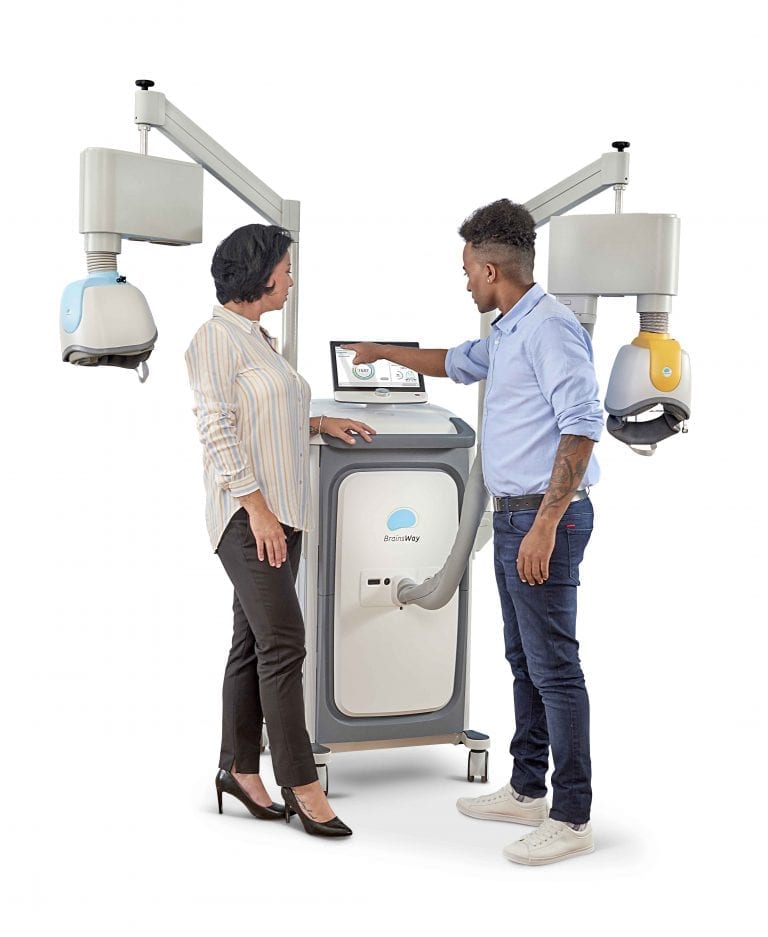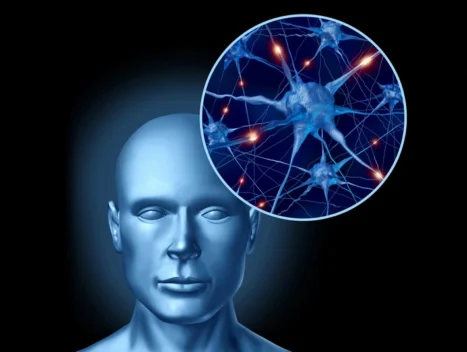For providers
Have you and your patient tried everything, but still battling depression? Our TMS treatment can be your clinical partner in helping your patients achieve remission from depression.
Collaborative Approach With Open Communication:
- We only provide TMS treatment services. We work with you in hand-in-hand in collaboration towards the health of your patients.
- We provide constant updates to you during and after the treatment course.
718-400-0867
Do you have any question?


About TMS
- The American Psychiatric Association (APA) recommends TMS therapy as a second-line treatment for patients who have not responded to antidepressants, or who are suffering side-effects from existing medications.
- FDA approved treatment for depression since 2008.
- All major hospital systems now use this treatment for a variety of ailments.
- Thousands of patients treated successfully with no major side-effects.
Transcranial magnetic stimulation (TMS) is a non-invasive technique that applies brief magnetic pulses to the brain in order to activate neurons in the relevant brain structure to release neurotransmitters that affect mood.
Your Patient's Process with TMS procedure

Evaluation
Once we receive your referral, your patient will be evaluated by one of our licensed clinicians

Insurance
Insurance prior authorization approvals - We do all the work for the approvals

Treatment
Typical treatment course is:
- 5 treatments a week for 5-6 weeks
- 15-20 minutes per treatment session

Communication
We keep you updated on your patient's progress throughout treatment.
Explore Our Main Service
TMS for Depression & Anxiety
Our new dTMS device will go deeper and cover more area than traditional TMS, providing better results.
TMS for OCD
We now have the only device approved by the FDA and covered by insurance for OCD.
TMS for Addictions
Smoking cessation has recently been approved by the FDA for our Brainsway device. Talk to us about your addictions.
See Our Latest Blog
- Jay Schiff
- 0 Comments
TMS for Panic Disorder: A Non-Invasive Alternative to Medication
Announcement This article will provide a comprehensive overview of TMS therapy as a non-invasive alternative for treating panic disorder, highlighting its benefits, effectiveness, and role in modern mental health care. Introduction Transcranial magnetic stimulation is a revolutionary therapy for several mental health disorders. TMS panic disorder treatment is becoming a popular treatment option for those […]
- Jay Schiff
- 0 Comments
The Future of TMS Therapy: The Evolving Role of the TMS Technician
Announcement This article will provide a comprehensive overview of the evolving role of TMS technicians in the future of TMS therapy, highlighting their importance, qualifications, and career potential. Introduction TMS (Transcranial Magnetic Stimulation) therapy is a non-invasive form of treatment that has received FDA approval for mental health conditions like depression and continues to be […]
- Jay Schiff
- 0 Comments
Anxiety in Seniors: How to Recognize the Signs and Seek Help
Announcement This article will provide a comprehensive guide on recognizing the signs of anxiety in seniors and seeking appropriate help to ensure their mental well-being and quality of life. Introduction Anxiety disorders can happen at any age. While most people think of anxiety happening in children or adults, senior anxiety is equally common. Understanding anxiety […]
- Jay Schiff
- 0 Comments
How TMS and Alcohol Treatment Can Work Together for Better Results
Announcement This article will educate readers on the synergistic benefits of combining Transcranial Magnetic Stimulation (TMS) therapy with traditional alcohol addiction treatments for improved mental health and recovery outcomes. Introduction TMS (Transcranial Magnetic Stimulation) therapy is a non-invasive form of treatment that utilizes magnetic stimulation to reach specific areas of the brain. This can improve […]
- Jay Schiff
- 0 Comments
Finding the Best Medication for OCD and Anxiety: What You Need to Know
Announcement This article will provide comprehensive information on the best medications for treating OCD and anxiety, helping individuals understand their options and encouraging them to seek professional help for personalized treatment plans. Introduction Obsessive-Compulsive Disorder (OCD) and Anxiety are two mental health disorders that can each have a detrimental impact on daily life. Research suggests […]
- Jay Schiff
- 0 Comments
How DTMS Therapy is Revolutionizing the Treatment of Anxiety and Depression
Announcement This article will provide a comprehensive overview of how DTMS therapy is transforming the treatment of anxiety and depression, highlighting its benefits, effectiveness, and future potential. Introduction DTMS (Deep Transcranial Magnetic Stimulation) therapy shows great promise for several forms of mental health disorders, particularly depression and anxiety. Today, rates of depression and anxiety are […]
- Jay Schiff
- 0 Comments
Am I Addicted to Weed? Signs and Symptoms to Look For
Announcement This article will provide a comprehensive guide to recognizing the signs and symptoms of weed addiction and offer practical steps and strategies for overcoming it. Introduction As more states have legalized marijuana, it has gained popularity as a recreational drug. In fact, 13% of adults use cannabis products regularly. However, as is the case […]
- Jay Schiff
- 0 Comments
Top 10 Therapy Goals for Anxiety to Help You Find Relief
Announcement This article will provide readers with actionable therapy goals for managing anxiety, helping them to understand and implement effective strategies for relief and long-term mental health improvement. Introduction Anxiety is considered a mental health disorder that is characterized by severe worry, concern, fear, and agitation. There are several types of anxiety disorders, including things […]
- Jay Schiff
- 0 Comments
A Comprehensive Guide: What is Transcranial Magnetic Stimulation Used For?
Transcranial magnetic stimulation (TMS) is a non-invasive technique that is used to treat several conditions. It has grown in its significance as a non-invasive brain stimulation technique after FDA approval for treatment of conditions like depression and OCD. Transcranial magnetic stimulation works by placing a coil over your head connected to a machine that is […]
- Jay Schiff
- 0 Comments
Deep Brain Stimulation vs. TMS: Which Is Right for You?
Deep Brain Stimulation (DBS) and Transcranial Magnetic Stimulation (TMS) are both neuromodulation techniques used in the treatment of neurological and psychiatric disorders. Both conditions have many similarities but they are two separate therapies and there are key differences to understand when considering the two. Today, there is an increasing interest in these therapies, and there […]
Get In Touch With Us
info@lifequalitytms.com
(718) 400-0867
(718) 4000-TMS
26 Court St., Ste 808
Brooklyn, NY 11201









